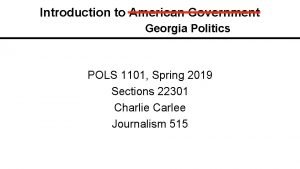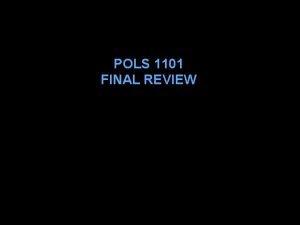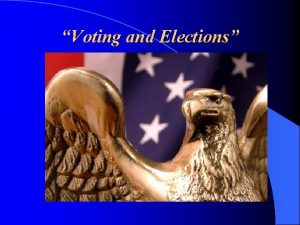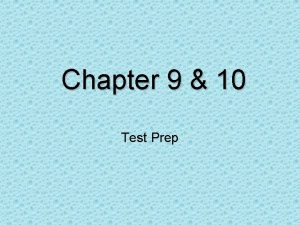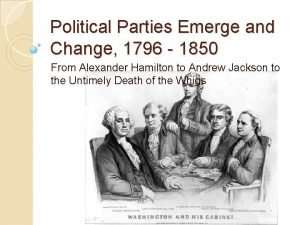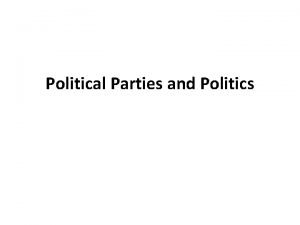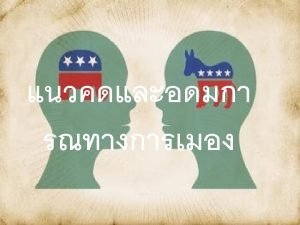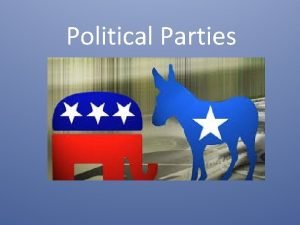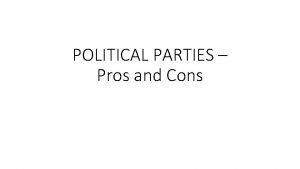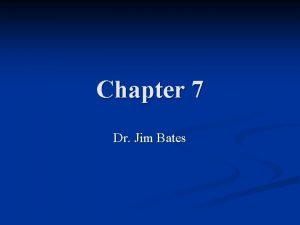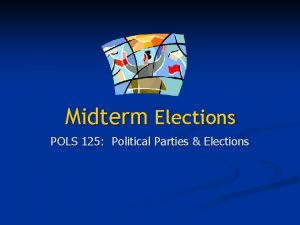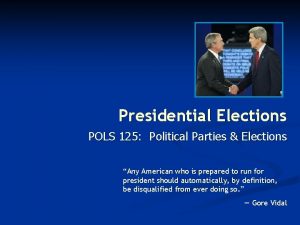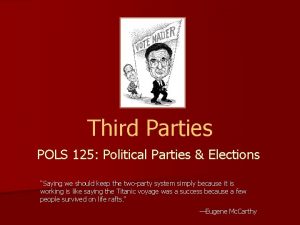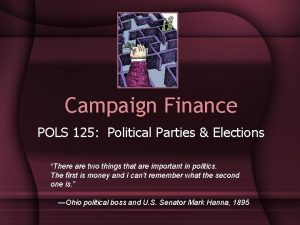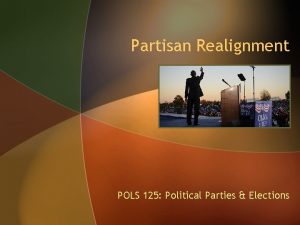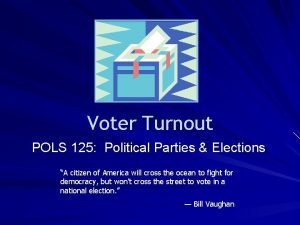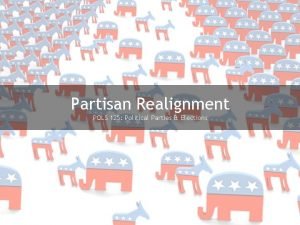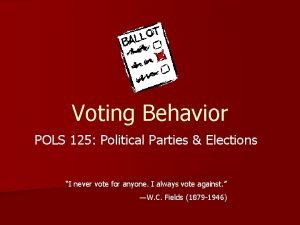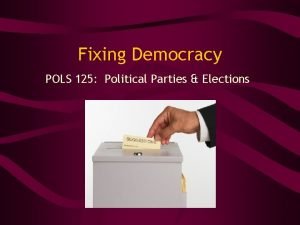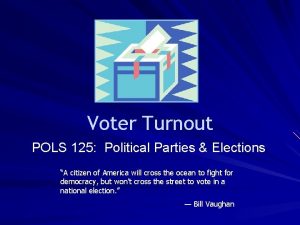Political Parties POLS 125 Political Parties Elections Why














- Slides: 14

Political Parties POLS 125: Political Parties & Elections



Why I Hate Political Parties n n Parties are divisive and polarizing Parties and narrow and rigid in their ideology Parties are self-interested and self-serving in their pursuit of elections Parties are obstructionists. Their petty squabbling hinders the government’s ability to get things done

Did the Founding Fathers Agree? “Let me now take a more comprehensive view, and warn you in the most solemn manner against the baneful effects of the Spirit of Party. . . ”

“Tripartite” view of American political parties Party-ingovernment Party-asorganization Party-in-the - electorate

PARTIES-IN THEELECTORATE PARTIES AS ORGANIZATIONS PARTIES-INGOVERNMENT Provide a short. Recruit, train, and hand cue for voting fund political candidates Provide stable rules and procedures for handling conflict in Congress Mobilize voter turnout Craft party platforms that help guide policy decisions Run party primaries and caucuses to winnow down the list of potential candidates Provide common ground between different branches and levels of government

Two Opposing Views Parties are dangerous and divisive Parties are absolutely indispensible

Imagine a world without parties…

The Responsible Party Model 1. 2. 3. 4. 5. Parties have a clear platform of issue positions. All candidates run for election on the basis of their party’s platform. Voters cast ballots based on the issues presented in the platform. Once elected, the majority party enacts their platform Voters hold the majority party accountable for the outcome. Notice that each of these questions presents a TESTABLE HYPOTHESIS. Does the “responsible party model” work in practice?

But… n n n Do parties have clear issue positions? Do voters accurately understand party differences? Do campaigns focus on parties and issues, or candidates? Do candidates run as party members, or as individuals? Do voters hold elected officials accountable for outcomes?

The American Two-Party System The institutional explanation n n Duverger’s Law The Electoral College Ballot access restrictions Campaign finance laws Historical and cultural explanations n n Downs and the median voter model Voter socialization

Advantages of the Two-Party System n n n Winners usually get a majority of the vote, which creates the sense of legitimacy necessary for governing. Tendency to incorporate but not empower radical ideas. Drives outcomes towards the median voter (compromise, coalition-building) Offers clarity of choice Enhances electoral accountability

Disadvantages of the Two-Party System n n n Slow to accept change. Lower voter turnout not all views are represented. Electoral rules allow for a “spoiler” effect. Virtual two-way elections encourage negative campaigns. Forces voters to engage in tactical voting, not voting based on conscience.
 Shanshan lian uga
Shanshan lian uga Pols 1101 final exam
Pols 1101 final exam Tempat pengukuran denyut nadi
Tempat pengukuran denyut nadi Steunverband pols
Steunverband pols Pictures
Pictures Brainpop voting
Brainpop voting What was one way progressives differed from populists
What was one way progressives differed from populists Political parties
Political parties The supreme court change
The supreme court change Political parties
Political parties Sistemas democraticos
Sistemas democraticos Political parties
Political parties Political parties pros and cons
Political parties pros and cons Why does gatsby stop giving parties?
Why does gatsby stop giving parties? Great gatsby jeopardy
Great gatsby jeopardy
